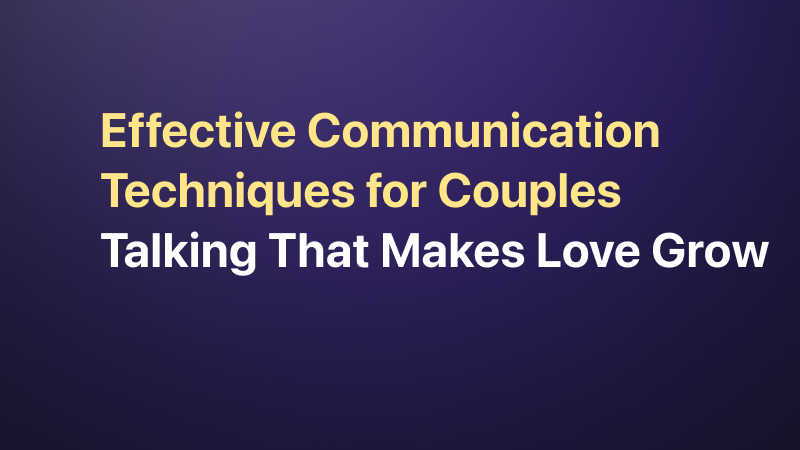Communication is the heartbeat of every relationship, and the way you talk to each other can make or break that loving connection. Imagine your relationship as a plant—if you water it right, it flourishes. But if you don’t, it wilts. Let’s dive into some super simple, practical, and fun ways to nurture your connection through better communication. Inspired by some of the best minds in relationship science (like Joe Hudson and the Gottmans), we’ve tweaked these tips to be as approachable and engaging as a cozy chat with a friend.
1. Say What You Mean, and Mean What You Say (Without the Drama)
It sounds simple, right? But often, we say things indirectly or beat around the bush, hoping our partner reads between the lines. Skip the guessing game! Be clear, direct, and kind. Instead of saying, “You never listen to me,” try, “I feel unheard when I talk about my day. Can we chat about it?” It’s about expressing what’s on your mind without turning it into a soap opera.
2. Listen Like You’re on a First Date
Remember the early days when you hung on every word your partner said? Bring that energy back! Good listening isn’t just about being quiet; it’s about showing interest. Nod, make eye contact, and ask follow-up questions. Think of it as your partner telling you the latest plot twist of your favorite show—get into it!
3. Use the Power of Pauses: The “Let’s Take a Breather” Technique
When things get heated, hit the pause button. It’s not about avoiding the issue; it’s about taking a moment to gather your thoughts and cool off. Imagine pressing a “chill” button. Come back when you’re both ready to talk calmly. This one technique can save you from saying something you don’t mean.
4. Play “What’s This Really About?”
Sometimes, the argument about dirty dishes isn’t really about dirty dishes. It’s often about feeling unappreciated or overwhelmed. When a conflict pops up, ask yourself and each other, “What’s this really about?” Get to the root of the issue rather than arguing about surface-level stuff.
5. Say Thank You More Often (Yes, Even for the Small Stuff)
We get so used to our partner doing their thing that we forget to say thanks. Whether it’s taking out the trash, cooking dinner, or just being there for a vent session, saying thank you goes a long way. It’s like a little love note in everyday life.
6. Swap “You” for “I” in Arguments
“You always…” and “You never…” are the quickest ways to put your partner on the defensive. Instead, switch to “I” statements. For example, “I feel overwhelmed when…” or “I would love it if…”. It turns criticism into sharing your feelings, making it easier for your partner to listen without feeling attacked.
7. End Every Disagreement with a Hug
Yes, really. Even if you don’t fully agree, ending with a hug or a touch can help remind you both that you’re on the same team. It’s a small gesture that says, “We’re in this together.”
Self-Reflection Question:
- When was the last time you felt truly heard by your partner? How did that make you feel, and what made that moment stand out?
Quick Quiz: How’s Your Couple Communication?
-
When your partner talks about their day, do you:
- a) Nod, ask questions, and really listen.
- b) Scroll through your phone and half-listen.
- c) Jump in with your own story.
-
When conflicts arise, do you:
- a) Take a breather and revisit when calm.
- b) Dive right into battle mode.
- c) Avoid it altogether.
-
How often do you express gratitude to your partner?
- a) Daily, even for the small stuff.
- b) Sometimes, when I remember.
- c) Rarely, I just assume they know.
Remember, communication isn’t about getting it perfect; it’s about staying connected, even when things get messy. Keep talking, keep listening, and keep loving!




